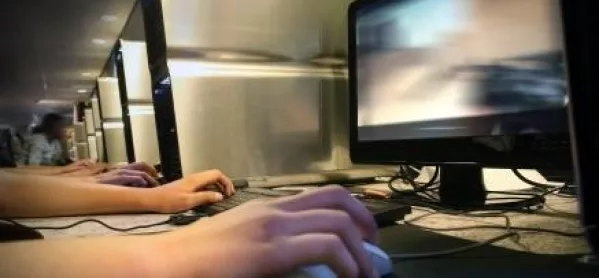Exam boards’ moves to get pupils to answer multiple-choice papers on computer screens are partly financially motivated, according to a leading advocate of online testing.
David Haggie, assessment services director at education software firm RM, said most UK awarding bodies were “exploring the potential” of the tests, as evidence was emerging that they are significantly cheaper to mark than short written answers and conventional essays.
However, he said it would be a mistake to see the technology purely as a vehicle for cheaper tests.
Mr Haggie told an assessment conference in Amsterdam that there was some public scepticism in Britain about multiple-choice tests, also referred to as objective tests, owing to fears of dumbing-down.
But there were benefits. “Objective items are cheaper: no printing, no logistics, no marking issues,” he said. Mr Haggie cited a study of tests in the US state of Maryland from 2001. This had found that short-answer tests cost $30 (pound;17) per student per annum, compared to $6 for a multiple- choice test.
Mr Haggie added that because schools and colleges were “increasingly IT ready”, they incurred few additional costs if they ran online exams. Other potential benefits included “speedy return of marks” and tests taking place whenever pupils wanted.
He noted that there was “lower take-up” of multiple-choice tests in exams such as GCSEs and A-levels.
“Getting the cost-saving is proving hard. Item banks (collections of questions) are very expensive to create and maintain,” he said. Other problems included boards’ inexperience at handling new tests and public mistrust of multiple-choice.
Mr Haggie urged test developers to work on a “hybrid model” of online exams, containing multiple-choice and longer questions, in order to retain public confidence.
In 2006, The TES revealed that England’s two largest exam boards were introducing new science GCSEs in which pupils would be able to score up to 75 per cent through multiple-choice papers.Derek Bell, chief executive of the Association for Science Education, warned that it seemed “an over-simplistic way of assessing what is a very complex learning process”.
Multiple-choice tests dominate assessment in the United States. Advocates say they can be used in very tough exams, such as entrance tests for those hoping to go to UK medical schools. Last week, The TES revealed that trials here of such a US-style university entrance exam saw boys do better than girls.RM, one of the biggest suppliers to UK schools, has just won a contract to run the marking of the Government’s new single-level test trial on-screen from December.
Mr Haggie said exam boards were not investigating online multiple-choice tests only in order to save money. It was also “about improving the service that they are trying to offer”, he said.





